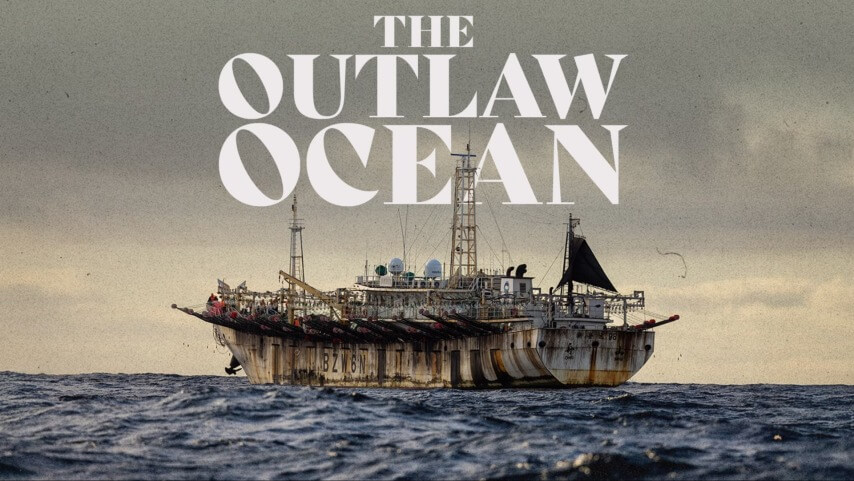Podcast Canon: The Outlaw Ocean expertly subverts the tropes of true crime
Ian Urbina and his Outlaw Ocean Project touch on something incredibly unnerving in their reporting.
The Outlaw Ocean key art (Courtesy of The Outlaw Ocean)
October ushers a darkness into our lives, in a sense both literal and metaphorical. It is in this spooky season that we often push ourselves towards increasingly uncomfortable territory with our entertainment, for the fun of being scared. Allowing oneself to be afraid can be a cathartic act, the release which comes once the film is over or the book has been shut for the last time is bracing. That world is pointedly not our world, we are reminded, and we can go on with our lives in a more contented manner for having experienced it.
So, this month, when considering an entry for the Podcast Canon, I went looking for something scary to elicit that same effect. What I found went so far beyond the brief that I fear it has intractably altered my perception of the world we inhabit. The show that I’m inducting this month is The Outlaw Ocean, a documentary podcast from the Canadian Broadcasting Corporation and the Los Angeles Times which expertly subverts the tropes of true crime to tell a more expansive, deeply troubling story.
Stemming from the work of Pulitzer-winning journalist Ian Urbina and his Outlaw Ocean Project, the program is an eye-opening exploration into the myriad atrocities which occur on the high seas, and the long tail of their impact on our own quotidian existence. These include murder, piracy, human trafficking, and sea slavery—and each are all uniquely horrific to hear described— but Urbina and his team touch on something more unnerving across their reporting, and that is the global system’s complicity in it all. If that sounds like pearl clutching, I assure you that listening to the series feels at times as though The Jungle were written by H.P. Lovecraft instead of Upton Sinclair. Global extractive capitalism has never felt more eldritch.
Easily the newest entry into the Canon, The Outlaw Ocean has only recently completed its second season this summer, and currently has just 15 episodes in total. The first season was dedicated to telling a variety of stories from the Outlaw Ocean Project’s first decade of existence in a rather episodic fashion, while this most recent batch of episodes take their time unspooling across a pair of longer arcs with a few islands in between. It is an effective storytelling structure. The initial batch of episodes expose listeners to the breadth of issues facing the oceans and those who rely on them for their survival, before digging into far thornier topics that require more nuanced discussions.
 Keep scrolling for more great stories.
Keep scrolling for more great stories.
